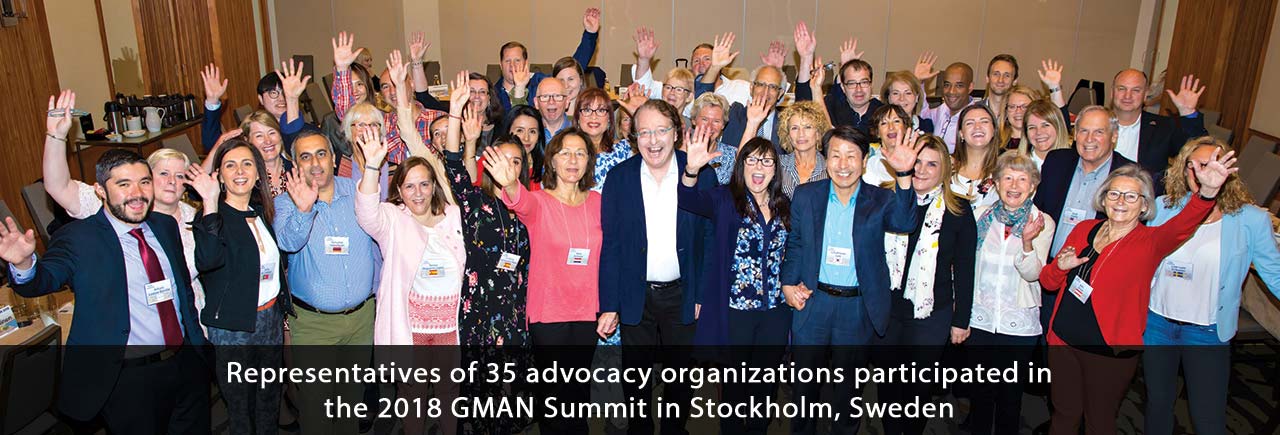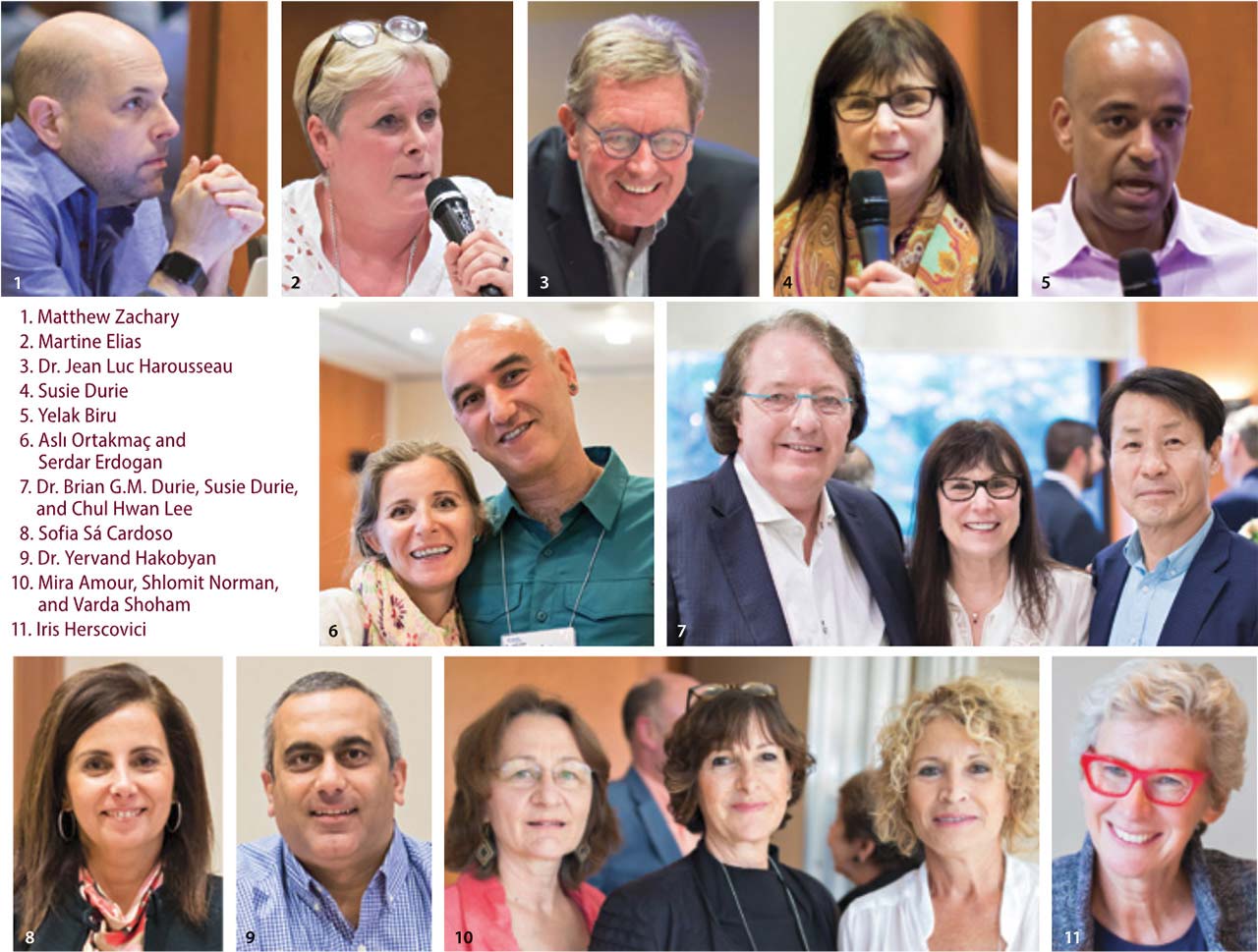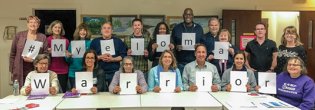The 2018 Annual Summit of the IMF’s Global Myeloma Action Network (GMAN) convened on June 17–19 in Stockholm, Sweden. The event brought together 35 advocacy organizations representing 25 countries from Asia, Australia, Europe, and Latin and North America. The contributions of Dr. Brian G.M. Durie (IMF Chairman of the Board), Dr. Joseph Mikhael (IMF Chief Medical Officer), Dr. Jean Luc Harousseau (Past President of HAS Institut de Cancérologie de l’Ouest Nantes, France), and industry partners and invited speakers from the US FDA, Stupid Cancer, and Global Alliance for Patient Access (GAfPA) made this meeting one of the most comprehensive ever.
One important conversation at the GMAN’s sixth Summit focused on access disparity faced by patients with myeloma around the globe. Maja Milisavljevi, the representative from Serbia, noted that “novel drugs that are routinely available in the US and some EU countries for over five years are still science fiction for us.” One of the key objectives of GMAN is to reduce these access disparities. GMAN’s other two main objectives are to build the capacity of local myeloma organizations and increase awareness of myeloma worldwide.

At the beginning of the meeting, the recipients of GMAN’s Susie Novis Durie Award were announced. In its third year, this competitive award encourages member organizations to develop an innovative program or product that raises awareness and builds capacity of the patients, primary care providers, and hematologists in their countries. Using this grant, Comunidad Española de Pacientes de Mieloma Múltiple (CEMMP) from Spain will develop a smartphone app for myeloma patients and healthcare professionals educating them on nutrition, health, and lifestyle. The Israeli Association of Myeloma Patients (AMEN) will use the funding to raise awareness about early detection of myeloma among families and physicians via social networks and other public venues. Myeloma Canada will use the grant to develop the Myeloma Advocacy Program (MAP) campaign.
The recipients of last year’s Susie Novis Durie Award showcased their work, which ranged from Argentina’s educational program for 100+ hematologists and 160 myeloma patients in remote parts of the country, to Austria’s mobile-enabled online course for patients with myeloma and their families, to Romania’s general and myeloma-specific training initiative for more than 300 nurses.
Capacity building of the member organization continued with Dr. Durie giving GMAN members an overview of IMF’s Black Swan Research Initiative Global Technology Platform™, an initiative that advances the causes of early detection and full sequencing of myeloma, clinical trials with curative intent for smoldering patients, single cell resistance and DNA mutation analysis, and retrospective and family studies. This worldwide collaborative effort is driven to continue improving patient outcomes in myeloma.
Dr. Mikhael provided a highlight of ASCO, IMWG, and EHA meetings that took place days before. He spoke with excitement about CAR T cell therapy, the use of pomalidomide early in relapse, the convenience and effectiveness of once-a-week carfilzomib, and the combination of daratumumab + carfilzomib. Dr. Mikhael also discussed drugs in the clinical trial pipeline such as selinexor, venetoclax, isatuximab, anti-CD38 antibody MOR202, and others.
Matthew Zachary, founder and CEO of Stupid Cancer, presented “Patient Advocacy on Your Own Terms” and focused on the unmet needs of adolescents and young adults living with cancer, as well as his personal journey of self-advocacy for choice. Matthew concluded his talk asking “How can we guarantee access and choice?” and affirming that “Patient Experience Matters.”
Dr. Arturo Loaiza-Bonilla gave an overview of Global Alliance for Patient Access (GAfPA), a network of physicians and patient advocates with the shared mission of promoting health policy that ensures patient access to appropriate clinical care and approved therapies. Dr. Loaiza-Bonilla highlighted the importance of working with Contract Research Organizations (CROs) to bring novel therapies through clinical trials to underserved countries.
Dr. Harousseau reminded attendees that although the costs of new therapeutic agents represent only 15% of the total healthcare expenditure, this is a critical concern in myeloma due to longer survival of patients, triple and quadruple combination treatments, and the “treat until progression” concept. With more innovative and expensive treatment options, such as CAR T Cell therapy, checkpoint inhibitors, and bispecific antibodies being just around the corner, drug prices have not yet hit bottom. It was agreed that one entity will not be able to solve this issue; patients, physicians, payers, policy makers, and pharmaceutical companies need to come together to address this concern.
Every year that I attend the GMAN Summit, I am reminded of this quote from Susie Novis Durie, President and CEO of the IMF, “Myeloma doesn’t stop at the border, why should
myeloma treatment?”
Visit gman.myeloma.org to view a video about the GMAN mission and objective through the eyes of its members.





